
(archive footage)
Veteran actors from the 3 Baltic countries - Estonia, Latvia and Lithuania - gather at a castle in Latvia to receive awards for their roles as Nazi villains in propagandist Soviet war films. They reminisce about the films that made them famous throughout the USSR, but also stigmatized the Baltic countries as Nazi sympathizers in the eyes of many Russians - a misconception that is nowadays exploited by the Russian media, desperate to label the Baltic countries as a fascist haven.

Senator Henry
Paul Madvig is a businessman in an American town in the 1920s, doing everything to maintain his power. He plans to marry Janet, the daughter of senator Ralph Henry who must be re-elected in order to ensure Paul's position. Paul is sure of himself and treats his competitor Shad O'Rory, who is involved in the gambling business, with arrogance. Then the senator's son is murdered. It is rumoured that Paul is behind the murder. Private detective Ned Beaumont, an old friend of Paul's, starts to investigate the case. Based on the novel "The Glass Key" by Dashiell Hammett.

Čukurs

A film based on novels by Latvian writer Andrejs Upīts tells a story about Latvian peasants around the 16th/17th century when they were under the role of several other countries.
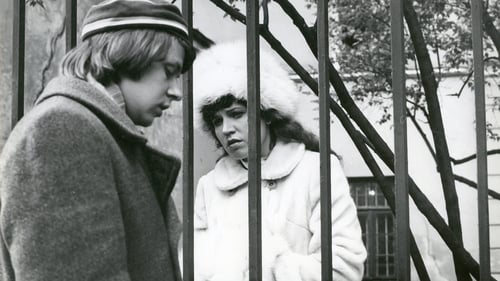
Miilinõmm
Based on the second part of the pentalogy "Truth and Justice" by Anton H. Tammsaare.

Muller
The film is about the rebellion in Ganja in 1919-1920 at the head of Gatir Mammad.
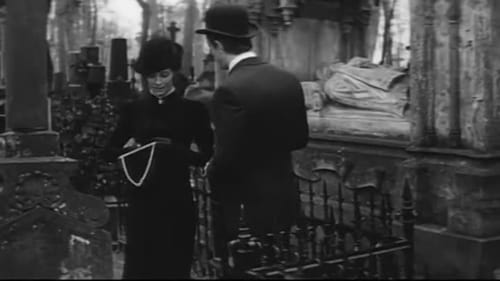
consul Dräger
Based on a true story about Soviet spy Lev Manevich. He lives in Italy and operates in the Nazi Germany and Austria. Manevich, who is posing as a businessman, collects information about the latest German airplanes made by Messerschmitt for Luftwaffe. On his spying trip to Berlin, Manevich noticed that a stranger was following him. Now his life is in danger, but he must do something to complete his mission...

Gofman
During the WWII a group of children are trying to save Stradivarius violin from Nazis.
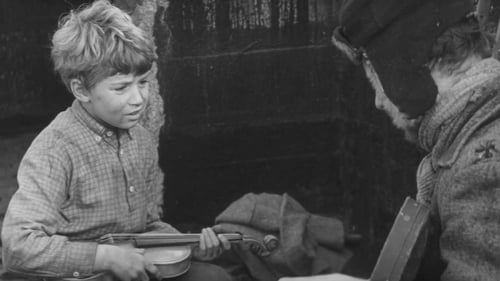
Kunz
A story of a young Belorussian boy musician during the WWII.

Herr Hoffmann

A seriously injured young man was found on a Georgian military road. Investigator Georgy Mikeladze finds out that the victim - the navigator of the Tallinn Shipping Company - was rolling in his new Volga on vacation days. The investigator goes to the criminal and, having connected employees of the Riga criminal investigation department to the case, arrests the robber.

Based on Jaan Anvelt's novel "Outlaws" which deals with the struggle of the Estonian Communist Workers' Movement and the life of revolutionaries in the Republic of Estonia in the 1920s. The film represents the maturation and decay of human soul in tense situations. The dark intersections and the dense, abandoned areas create a tumultuous tension field in which the characters find themselves. Their choices and decisions overwhelm them in one way or another. Where is the way out?

The action takes place in the North of Scandinavia, where Hitler's Germany tried to keep its last frontier. Here by the will of circumstances gets pilot-Navigator uzbek Akbar Ibrahimov, whose plane was shot down in battle, and joins the ranks of the Resistance. Soon he managed to get an officer on a German submarine, and later report on the secret bases of the enemy.

German Officer
Parte 1 e Parte 2

Friedrich Klotz
After Tulyev's arrest, Soviet counterintelligence continues the radio game with the enemy, sending encryptions signed "Nadezhda" to the Western intelligence center. KGB officer Sinitsyn, friendly towards Tulyev, tries to persuade him to take his side — he arranges a meeting to a scout with Mariya and her son, whom he has never seen before. In addition, Mikhail learns that his father didn't die of his own death, but was most likely killed. Meanwhile, a young Soviet scientist Borkov, who spoke at an international conference about his innovative work, finds himself in the spotlight of the Western security services.
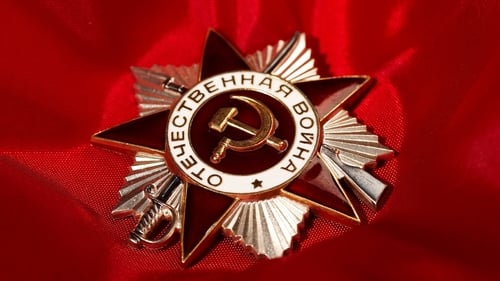
O trabalho mais famoso do diretor de cinema russo Yuri Ozerov é o épico Osvobozhdenie (A Libertação) sobre a WWII, feito em cinco partes e 470 minutos, que foi muito popular em seu país. Cada uma das duas primeiras partes foi visto por 56 milhões de pessoas. Osvobozhdenie (1967-1971), seu maior sucesso, foi notável não só por suas impressionantes cenas de batalha, mas também por sua tentativa de mostrar a guerra pela perspectiva dos soldados russos comuns. 1 O Arco de Fogo 2 O Avanço 3 Rumo ao Golpe Principal (parte 1) 3 Rumo ao Golpe Principal (parte 2) 4 A Batalha por Berlim 5 O Ataque Final
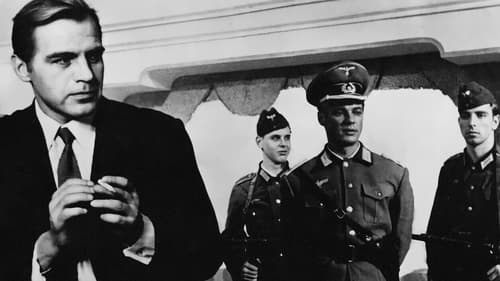
herr Tanger
At the end of 1943, during the occupation in Odessa, a new specialist Kraft arrives at the shipyard and soon becomes a chief engineer. It never occurred to anyone that a Soviet intelligence officer was hiding under the guise of a leader showing official zeal. At the decisive moment, when the victorious offensive of the Soviet troops forces the German-Romanian invaders to leave Odessa, on the instructions of the Center, Kraft leaves with them for further work behind enemy lines.
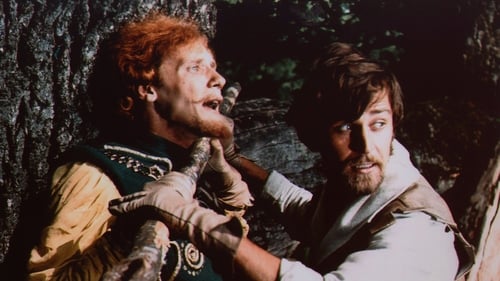
Ivo (voice)
A medieval love story with lots of adventures. The times are troubled - there's a revolt of peasants going on. To secure its safety a monastery chases for a relics of a holy Brigitte. A nobleman promises to get it if he gets beautiful Agnes as a reward. But she fells in love with a handsome adventurer. The monastery has to act shrewd now and play double game. The movie is still the best achievement of the Estonian cinema. Based on a novel.

Second world war. In one of the German intelligence schools are preparing sabotage groups of Russian prisoners of war for casting in the USSR. Among them — Nikolai Verezhnikov, who, not being a professional scout, was able to impose their own game and interfere with the plans of the enemy…
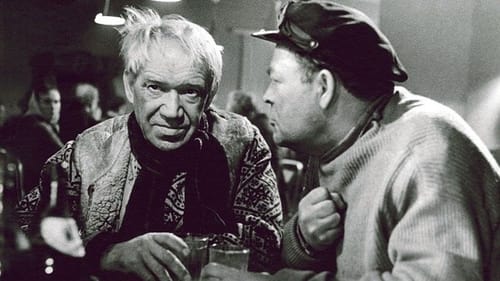
Captain of the "Holy Herd"
Martin Puri is an elderly fisherman who is told to retire because of his old age. When a group of people has to be saved from a boat in an autumn storm, Martin understands that one cannot act against the sea but together with it.

Muruk
After a long night with his old war buddies, Andres Lapeteus regains consciousness in the hospital. How has confusion, bewilderment and alienation developed between these men who once fought together side by side? Is this the inevitable result of the Stalinist regime, the influence of his social climber wife, or the effect of his personal cowardliness and conformism? What happened to Andres Lapeteus?

Vikkel
It's 1940 - the first summer of the Soviet occupation on the Estonian island Saaremaa. Teenagers stepping in their lives have important decisions to make. Should they support the Soviet regime or join the resistance?
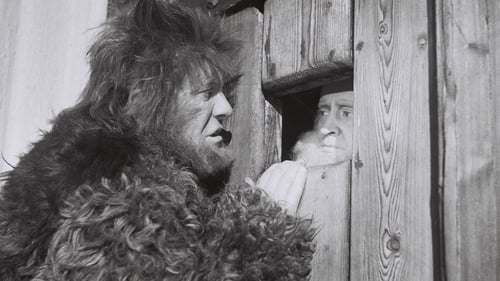
Constable
The way Saint Peter explains it to the Devil who's knocking on Heaven's door to collect his share of souls: there will be no more souls, as God has come to doubt if humans are really meant to achieve salvation. If they aren't then how can they be punished posthumous and sent to Hell? There's only one way to make sure if sinning is the human nature, or is it that they simply don't want to better themselves - Devil himself must go down to Earth, in human form, and if he can achieve salvation then so can a human being... Based on A. H. Tammsaare's classic novel of the same name.
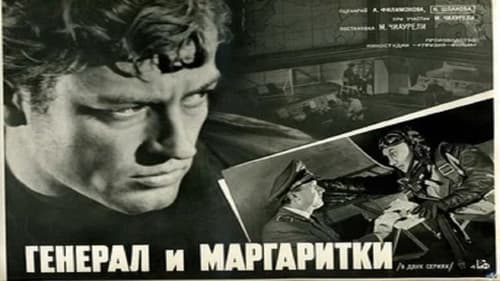
Shnorke

Four Estonians who have escaped to Sweden during the war return to Soviet Estonia in the 1950s. The four saboteurs work for the Western Secret Service. Difficulties arise when they cross the border with an injured companion - the three have to decide what to do next.
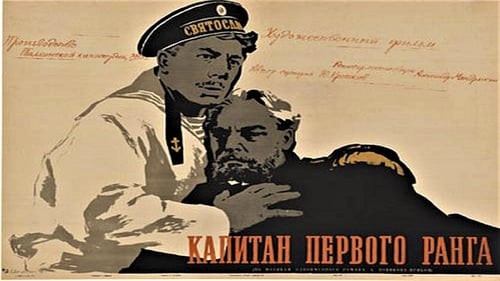
Leopold Everling - graf

Paul
After the war, young yachtsmen from the coastal town deal with daily work, training and competitions without knowing about the downside. Suddenly, mysterious events start to happen, testing the vigilance, ideological and moral beliefs of the local people.

Wartime documentary by Dovzhenko and Solntseva.
















